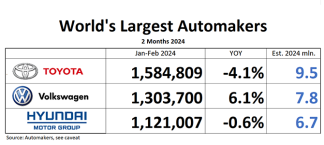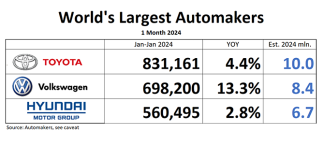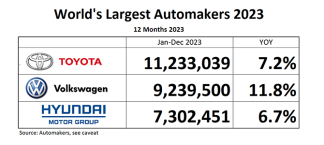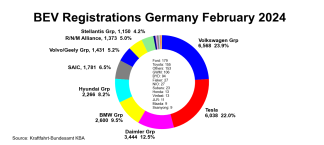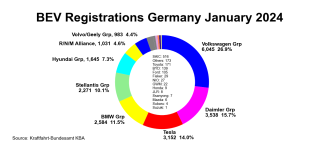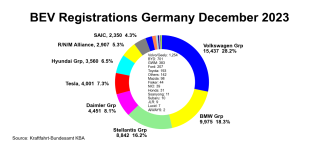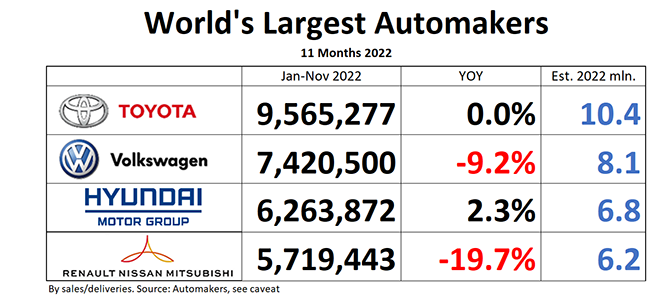
The Dailykanban interrupts its annual year-end hibernation to bring you the November results of World’s Largest Automakers 2022.
With only one month to go on the reporting calendar (Japanese OEMs will report their full year data by the end of January 2023, Volkswagen mid-month, Hyundai Group shortly after New Year’s Day) the following is clear as miso soup:
As predicted by Dailykanban as early as May this year, Toyota Group will be world’s largest automaker, again. Hordes and hordes of alleged experts have been predicting that Toyota is doomed due to its battery-skepticism, but sales data don’t seem to listen. And damn the chip shortages, factory closures and other mayhem, Toyota will report 2022 deliveries in excess of 10 million units.
Volkswagen is not performing as badly as it did earlier in the year. In November, it delivered 9% more units than in the same month of the prior year. However, VW will be lucky to report full-year deliveries of 8 million units, and it will hope for a better 2023. You’ll be hearing a lot about not chasing volume but profits from the Germans.
Korean Hyundai Group keeps being frisky. It will have kicked the Renault-Nissan-Mitsubishi Alliance off the podium.
The Alliance looks as moribund as ever. It’s a miracle that it is still an alliance of some sort, and the Dailykanban is looking forward to a new year without having to monitor the decline.
And now for the usual disclaimer: Daily Kanban ranks world’s largest automakers by sales, as reported by the automaker. We used to determine the largest automaker in the world by looking at production, because this was how the global automaker umbrella association OICA had done it in the past. OICA seems to have thrown-in the towel, and you no longer will find any recent auto manufacturer rankings on the previously authoritative OICA website, neither by production, nor by sales. Reliable production data are harder and harder to come by, forcing us to switch to sales/delivery data published by automakers. Be aware that “deliveries” can be a rather elastic term. Deliveries can be sales to end users, or cars dumped on dealer lots, or cars “delivered” to sales organizations, or combinations thereof.
Also, please note that Mitsubishi Motors does not publish global sales, only domestic sales in Japan. For that reason, we are forced to use Mitsubishi’s published global production data as a proxy. Speaking of the Alliance, their number reporting is not allied at all, and a common picture requires considerable Excel machinations. Nissan and Mitsubishi report sales and production, Renault only reports deliveries. Mitsubishi does not report global sales, Nissan does. To make the confusion complete, Nissan sometimes reports sales for the April-to-March fiscal year, and sometimes for the calendar year.
